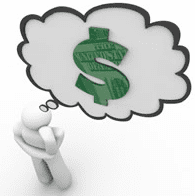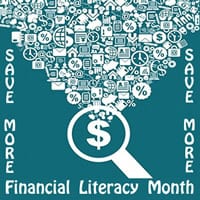Welcome to 2022!
It’s time to think about your finances. What are your financial goals for the upcoming year? Are you looking to save for an emergency fund, retirement, a new home or home improvements, education, an emergency fund?
There is so much to accomplish and never enough money. Well, that is how I used to think. But not anymore. 
I started by taking small steps to achieve my financial goals. My first goal was to create an emergency fund of $5,000. Sounds overwhelming, but I broke it down into small steps:
$5,000 in one year is $416.66 a month – $5,000 in one year is $96.15 a week – $5,000 in one year is $13.70 a day
Next, I needed to find this money in my budget. What could I cut back on or do without? It turns out it was multiple ideas to come up with this money. We spaced out haircuts, we stopped buying beverages for work (we bring our own), we trim our dog’s nails ourselves and more.
Lastly, we automated the savings. Each paycheck we save $100.00 into our emergency savings automatically. It’s set and done.
Now we have the emergency fund we need to be prepared for whatever happens in our life.
Please know that it’s never too late to start to save for your goal. Obviously, the earlier you start the better off you are. But not starting is a mistake. Make a plan and decide to start now. You too can achieve your financial goals this year.


 Weddings are an emotional celebration. We love the idea of a bride and groom starting a new life together. We use words like “two becoming one” or “sharing your lives as one,” meaning that everything will be shared as though the couple are no longer individuals. I believe this puts a lot of unnecessary sentimental pressure on a couple to share all their finances even though it’s not always necessary, or even wise, to do so for every single account or property.
Weddings are an emotional celebration. We love the idea of a bride and groom starting a new life together. We use words like “two becoming one” or “sharing your lives as one,” meaning that everything will be shared as though the couple are no longer individuals. I believe this puts a lot of unnecessary sentimental pressure on a couple to share all their finances even though it’s not always necessary, or even wise, to do so for every single account or property. y people’s minds.
y people’s minds.


